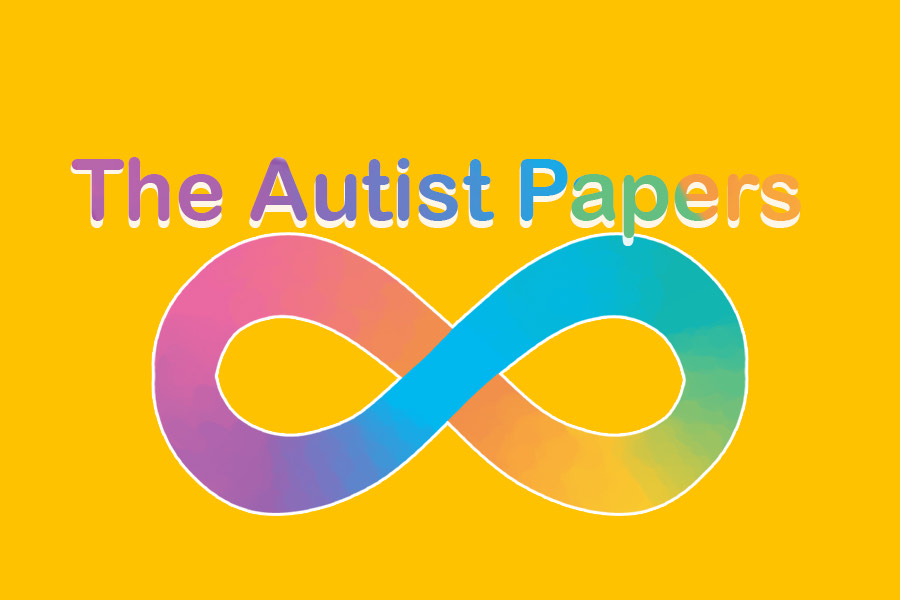When I tried to come up with a worthwhile topic on the broad issue of autism acceptance, I immediately thought about how girls on the autism spectrum receive their diagnosis a lot later in life than boys do, if at all. It’s much harder to diagnose an autistic person as they get older, especially due to the prominent masking capabilities of autistic females or more femme-presenting individuals.
“Masking,” as it’s called in the autistic community, is the attempt by a neurodiverse individual to appear neurotypical. Young autistic girls are notoriously good at this, which makes them harder to diagnose.
The other week, Ross Calabro reached out to me. He’s a senior at the University of Massachusetts who’s transmasculine and autistic, and he wanted to offer his perspective on autism and neurodivergent acceptance.
I met with Calabro at Argo Tea, and he offered a unique lens to understanding the autism spectrum, gender and being in the LGBTQ community.
People on the autism spectrum are 15-35 percent more likely to identify as LGBTQ, according to autism research organization SPARK. Anecdotally, I came out as a bisexual woman during my first semester of college. I had been so used to stuffing down my feelings, including those surrounding my autism diagnosis a few years prior, and my feelings for girls as well as boys.
Calabro, who was assigned female at birth, offers his unique perspective on finding his place here at UMass being both autistic and transmasc.
“I think the post-pandemic era at UMass was especially a hard one on my autism because everyone was so eager to socialize and meet one another,” he said. Rightfully so — this is a college campus after all. I was able to relate to Calabro a lot during our conversation because he kept bringing up the idea of social or masking burnout, which he said, “can very easily be a contributing factor of other mental illnesses.”
Social burnout is something I experience very frequently as an autistic person. When I was younger, I would keep to myself when I was burned out socially for the day, but as I’ve gotten older, I’m not able to keep up my social endurance throughout the day.
Calabro also stuffed down his feelings about being transmasc and nonbinary from a young age, much like I did when I was coming to terms with my own bisexuality.
“In high school, it was easier for me to come out as a lesbian versus transmasc and nonbinary,” he told me. “I talked myself out of my own transness because I was so convinced about what other people told me about trans people in general.”
I remember learning something similar in high school, that trans people only make up a small percentage of the population, but as society builds and adapts, we see more acceptance towards people who identify as neither male nor female.
Calabro shared with me his complex, emotional journey through identifying and being diagnosed as autistic. He attributes lot of his diagnosis story to being assigned female at birth, leading to his diagnosis of “mild autism” as a young child.
“I was told that my ‘developmental disability’ would go away in time after being in all of these therapies for developmentally delayed children. Autism is a neurotype; it’s not a disorder, and with that, it doesn’t ‘go away’ with time,” he said.
Growing up, I believed that autism was a disability and that I was seen as different compared to my peers. That’s why it took me so long to come to terms with my official autism diagnosis. Now, I use my diagnosis to justify why I might think or act differently than a neurotypical person. I still think that to some degree, autism could be classified as a disability. As Calabro put it, “Autism is a dynamic disability. For example, in the social aspect of diagnosis, I don’t do as well interacting or making or keeping relationships with neurotypical people.”
What Calabro and I can both agree on as autistic people is that neurotypical people should be more accepting. We live in a neurotypical world, but there are autistic people everywhere. A lot of what we both deal with as autistic college students is internal. We both constantly question and criticize ourselves for being as we are, simply because we’ve been told or labeled as “weird” by neurotypicals who see us do things that aren’t typically socially acceptable.
The best thing that neurotypical people can do for the autistic community is educate themselves, whether it’s reading this column, lighting it up red on Autism Acceptance Day or to observe Autism Acceptance Month.
Liv Cushman can be reached at [email protected].



















